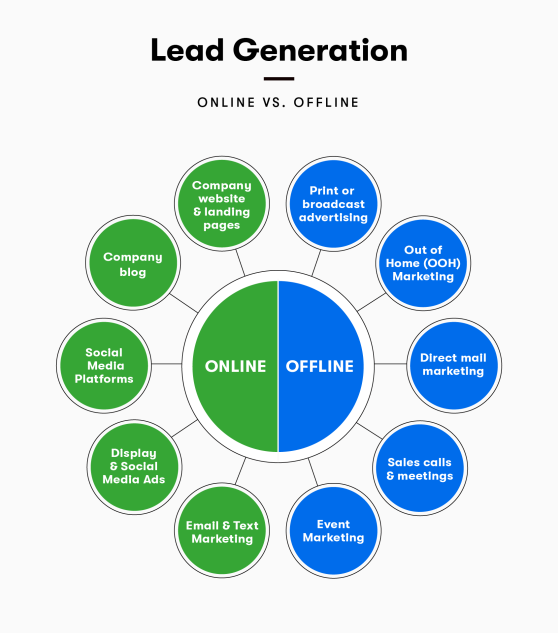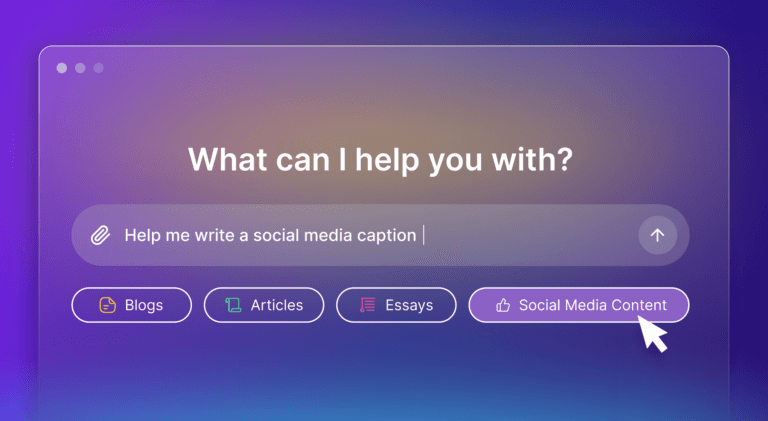Content Marketing Platforms 101: Understanding The Basics

In the digital era that we live in, content marketing is one of the effective ways to build brand awareness. According to shanebarker.com, “84% of people expect brands to provide content that entertains and adds value to their lives. And, 70% of them prefer to learn about products through content, not ads.” With plenty of options to choose from, it can be challenging for a company to understand how to create and distribute content.
In this guide, we will discuss everything you need to know about content marketing platforms. This includes their pros and cons, why companies should work with them, and how to choose the right one for your business.
What are Content Marketing Platforms?

Content marketing platforms are software tools designed to help companies plan, create, publish, and measure the effectiveness of their content marketing campaigns.
Content marketing platforms enable marketers to create and store various types of media such as text, images, videos, infographics, and interactive content. These assets can then be distributed or accessed by potential customers to learn more about the brand or product.
Content marketing platforms offer a range of features.
With a content marketing platform, companies can streamline their content marketing efforts and achieve better results with less effort. Some of the notable functions of content marketing platforms are listed below.
- Planning: These platforms help you in the decision-making process of overall and specific content strategies.
- Creation: Content marketing platforms offer a variety of options like curated content, hiring writers, and team collaboration.
- Optimization: Content marketing platforms offer tools and techniques to improve SEO for copywriting, photo, and video-based content.
- Distribution: These platforms can help automate the distribution process on social media, landing pages, etc.
- Content marketing analytics: Lastly, content marketing platforms offer detailed reports to analyze the performance of the content and make relevant adjustments if needed.
Importance of Content Marketing Platforms in the Digital Era

In the world of technology, everyone consumes content digitally. This makes content marketing and CMPs important. According to a survey conducted by Semrush, “44% said improving the quality and value of their content has led to success.”
According to another survey by HubSpot, companies that prioritize blogging are 13 times more likely to achieve a positive ROI on their marketing efforts. Creating and managing a successful content marketing campaign can be challenging for companies with limited resources and expertise. Here are some reasons companies should consider working with a content marketing platform.
1. Wider audience and more traction
As you create and distribute high-quality content, it can invite a larger audience, create good experiences and make them come back for more. This helps companies build on their awareness and presence, digitally.
2. Increase in lead generation
By creating content that addresses the pain points and needs of their target audience, companies can attract and nurture leads, ultimately leading to increased conversions and sales. The more they see relevant, quality content, the more likely they are to make a purchase.

3. Improved visibility on search engines
Consistent, high-quality content is the key to winning search engine rankings and engaging your audience. Higher search rankings not only mean more visibility online but also drive more traffic to your site. According to FirstPageSage, the #1 organic position in Google search has a 39.6% click-through rate in 2023.
4. Improved ROI
Content marketing provides better ROI, with studies showing that it outperforms traditional advertising. According to Search Engine Land, companies that have blogs generate 67% more leads, earn 97% more inbound links, and receive 55% more visitors to their sites. As published content gains traction, traffic, leads, and conversions, the ROI tends to compound and become more sustainable over time
Choosing the Right Content Marketing Platform
With so many content marketing platforms available in the market, choosing the right one for your business can be overwhelming.
Here are some factors to consider when evaluating CMPs.
- Features and functionality
Consider the features and functionality that are most important to your business. Do you need a platform that offers content creation tools, optimization features, or advanced analytics? Make a list of your requirements and prioritize them accordingly.
- User-friendliness
Look for a platform that is user-friendly and easy to navigate. The last thing you want is to spend hours trying to figure out how to use a complicated platform.
- Customization options
Consider the customization options that the platform offers. Can you tailor it to your business’s specific needs and requirements?
- Integration and compatibility
Ensure that the CMP integrates with your existing marketing stack and tools. This will help streamline your workflows and improve efficiency.
- Customer support
Look for a platform that offers reliable customer support and training resources. This will ensure that you get the most out of the platform and can quickly resolve any issues that arise.
Content Marketing Platforms: Benefits and Drawbacks
Just like any other technology, content marketing platforms have their pros and cons. The list below talks about the advantages and disadvantages.

Benefits
- Content marketing platforms automate tedious tasks such as content creation, scheduling, etc. This saves time and allows marketers to focus on critical tasks.
- Content marketing platforms facilitate collaboration between teams and stakeholders by centralizing all content-related activities in one platform. This eases the workflow and tracking.
- The platforms provide tools and resources, such as templates and calendars, for quality content creation and consistency.
- CMPs provide advanced analytics and reporting features that allow marketers to track the performance of their content marketing campaigns. This allows decision-making to be data-driven and reliable.
- Using CMPs can boost customer loyalty and create a closer relationship. As personal brands create content strategies, they can help customers develop a personal connection with your company and rely on you as a trusted source of information.
- By providing all the tools necessary for content marketing in one place, content marketing platforms can save you money by eliminating the need for multiple tools and services.
Drawbacks
- Content marketing platforms require an initial investment, which can be a barrier for small businesses and startups with limited budgets.
- Content marketing platforms come with a learning curve but offer training resources and customer support.
- Some content marketing platforms may have limited customization options, but most offer integrations and API access for tailoring the platform to company needs.
- Using a platform means relying on a third-party provider to store and manage your content. This may limit your control over your content and how it is used or distributed.
Our Top Picks of CMPs
Can’t decide on a content marketing platform? We’ve got you! Here are some popular content marketing platforms to consider.
- Pepper’s CMP
With its newest release of the AI-powered content marketing platform, Pepper Content’s CMP not only helps you create data-driven quality content but also allows a hassle-free experience of distributing it and gives you a detailed report of how your content performs.

- HubSpot
HubSpot is an all-in-one inbound marketing platform that offers a range of features, including content creation and management, social media management, email marketing, and more.

- CoSchedule
Another trusted CMP, CoSchedule is a content marketing and social media management platform that allows teams to plan, create, and distribute their content in one place.

- Contently
Contently is a content marketing platform that connects companies with freelance writers and other content creators to produce high-quality content.

- MarketMuse
MarketMuse is an AI-powered content optimization platform that helps teams create content that resonates with their target audience and ranks well in search engines.

A Quick Summary
Content marketing platforms provide several advantages, such as improved efficiency, enhanced collaboration, better content quality, and more accurate measurement and analysis. By utilizing the appropriate CMP, businesses can simplify their content marketing efforts and attain better outcomes with less effort.
Using the right CMP, organizations can produce and disseminate premium content that boosts brand visibility, generates leads, and promotes customer interaction and loyalty towards the brand.
Key Takeaways
- Content marketing platforms are software tools that help companies plan, create, publish, and measure their content marketing campaigns.
- They provide several functions to streamline content marketing efforts, including content planning, creation, optimization, distribution, and analytics.
- Content marketing platforms are important in the digital era because everyone consumes content digitally, and they can help companies achieve better results with less effort.
- Content marketing platforms can help companies reach a wider audience, increase lead generation, and improve visibility on search engines.
- When choosing content marketing platforms, companies should consider factors such as features and functionality, user-friendliness, customization options, integration and compatibility, and customer support.
- Popular CMPs include Pepper Content’s CMP, HubSpot, CoSchedule, Contently, and MarketMuse.
FAQs
Content marketing platforms are focused on creating, distributing, and measuring the performance of content marketing campaigns. In contrast, content management systems are designed for creating and managing content on a website or digital platform.
The top 5 platforms for social media in the world are Facebook, YouTube, Instagram, WhatsApp, and Facebook Messenger.
As you post more and more content, it becomes open to interpretation, leading to audience skepticism. Publishing more and more content can also cause an overload to your regular audience.
Content marketing platforms are a useful tool for businesses of all sizes and industries. Whether you’re a large consumer brand or a small service-oriented company, content marketing platforms can help you connect with your intended audience.
Latest Blogs
Learn how to rank on AI search engines like ChatGPT, Perplexity, and Gemini by optimizing your content for authority, structure, and relevance. Stay ahead in AI-driven search with this strategic guide.
Explore the best healthcare SEO services for your medical practice. Improve online visibility and effectively reach more patients in need of your services.
Discover top social media agencies specializing in banking solutions, enhancing financial services and driving engagement.
Get your hands on the latest news!
Similar Posts

B2C Marketing
5 mins read
Top Choices for Best Content Marketing Services in B2B Industries

Artificial Intelligence
5 mins read
How A Lead Generation Specialist Can Use AI-Powered Content Funnels to Drive Conversions

Artificial Intelligence
4 mins read